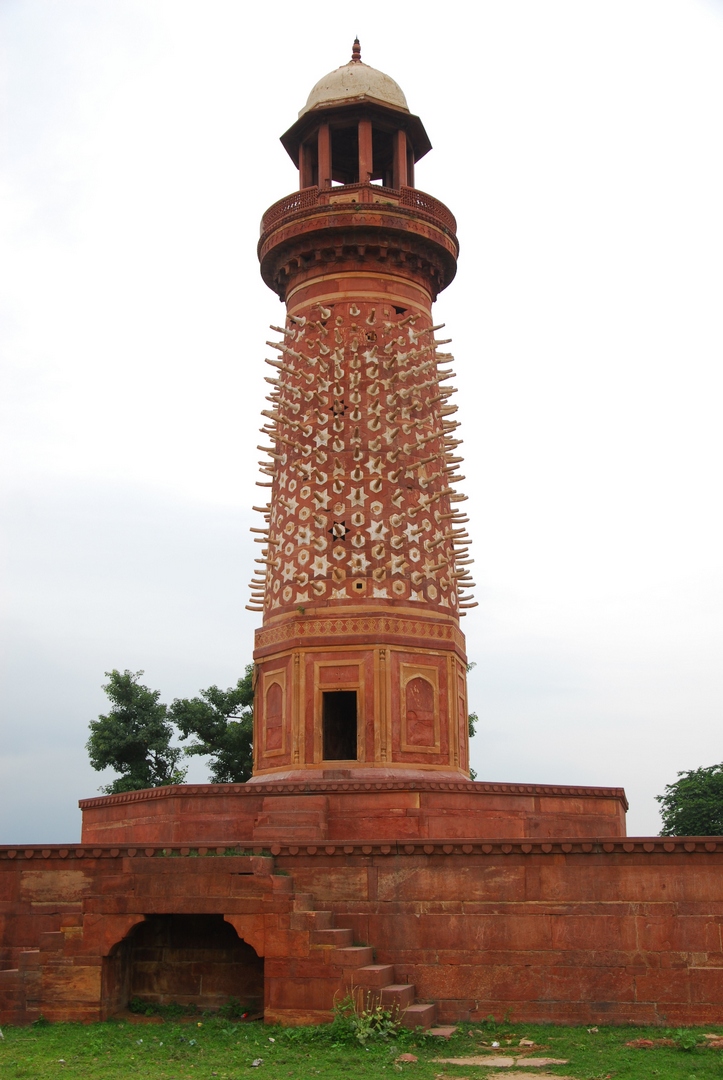Know About Hiran Minar Skp
Hiran Minar (Urdu: ہرن مینار; or "The Deer Tower") is an early 16th-century Mughal era complex located in Sheikhupura, in the Pakistani province of Punjab.
Coordinates
31°44′35″N 73°57′18.7″E
Location
Sheikhupura, Punjab, Pakistan
Beginning date
1607
Completion date
1620
The complex was built at the site of a game reserve in
honour of Mughal Emperor Jahangir's beloved antelope named Mansraj. The
Emperor is remembered for his fondness of nature, and his complex embodies
the Mughal relationship between humans, pets, and hunting.
Location:
The Hiran Minar complex is located in the city of
Sheikhupura, about 40 kilometres northwest of Lahore. The complex is located
near the Sheikhupura Fort, which also dates from the early 17th century. Both
sites are accessible from Lahore via the M2 Motorway, which connects Lahore to
the Islamabad.
History:
Hiran Minar was built during the reign of the Mughal Emperor Jahangir in a hunting reserve used by the Mughal royals. The reserve was built in a scrub forest, and allowed Mughal emperors to experience a sense of semi-wilderness near the imperial city of Lahore. The wild-reserve was used as a park where visitors could enjoy the sport of hunting.
Layout:
The complex consists of a Jahangir-era minaret situated next
to a larger Shah Jahan-era complex.
Minaret
The minaret itself was built in 1606 C.E. as a monument to
Emperor Jahangir's beloved pet antelope, Mansiraj, or "Lord of All Animal
Beings". The practice of building such tomb-markers over the skulls of
game animals is an ancient Persian custom.
The minaret and tank were soon accompanied by a larger pavilion, built during the reign of Shah Jahan.
The Jahangir-era minaret stands 110 metres tall, and was
built in 1606 C.E. as a tomb marker for the emperor's pet antelope,Minraj.
The sides of the minar are inscribed with a eulogy to the pet antelope.
Pool
A massive rectangular water-tank pool measuring 229 metres
by 273 metres lies at the heart of the complex. At the center of each side
of the tank, a brick ramp slopes down to the water, providing access for wild
game that were sought by hunters.
Pavilion
An octagonal pavilion built during the reign of Shah Jahan is at the centre of the pool.The pavilion is two-storeyed, and is topped by a rooftop chhatri that served as a stone gazebo. The pavilion's architecture is similar to the Sher Mandal at Delhi's Purana Qila,built by Emperor Humayun.
The pavilion was surrounded not only by the water tank, but also semi-wilderness. The pavilion was thus likely used for recreational purposes.
Causeway
A causeway spans the pool to connect the minaret with the
pavilion along an axis which passes through a gateway.
Gallery
Short Video




Comments
Post a Comment